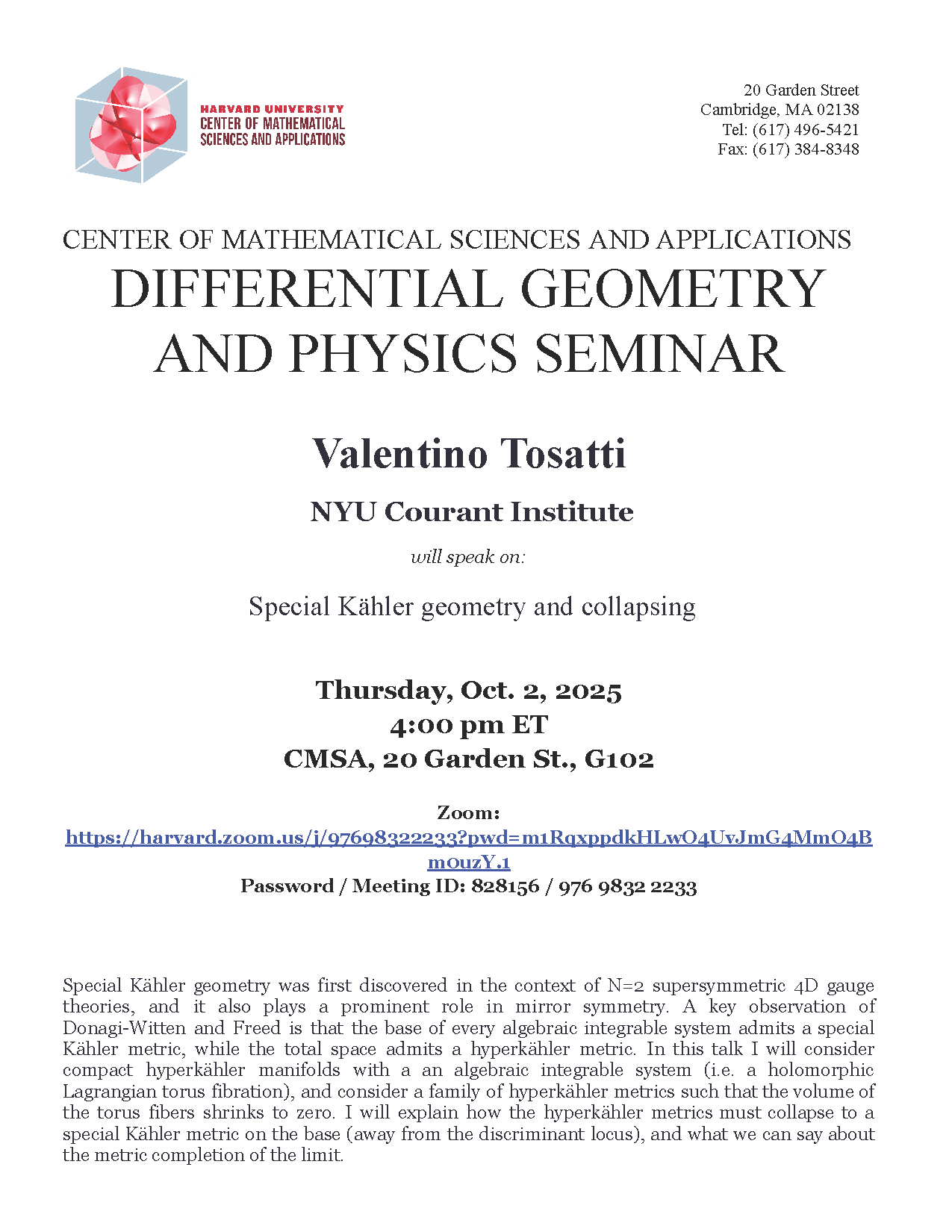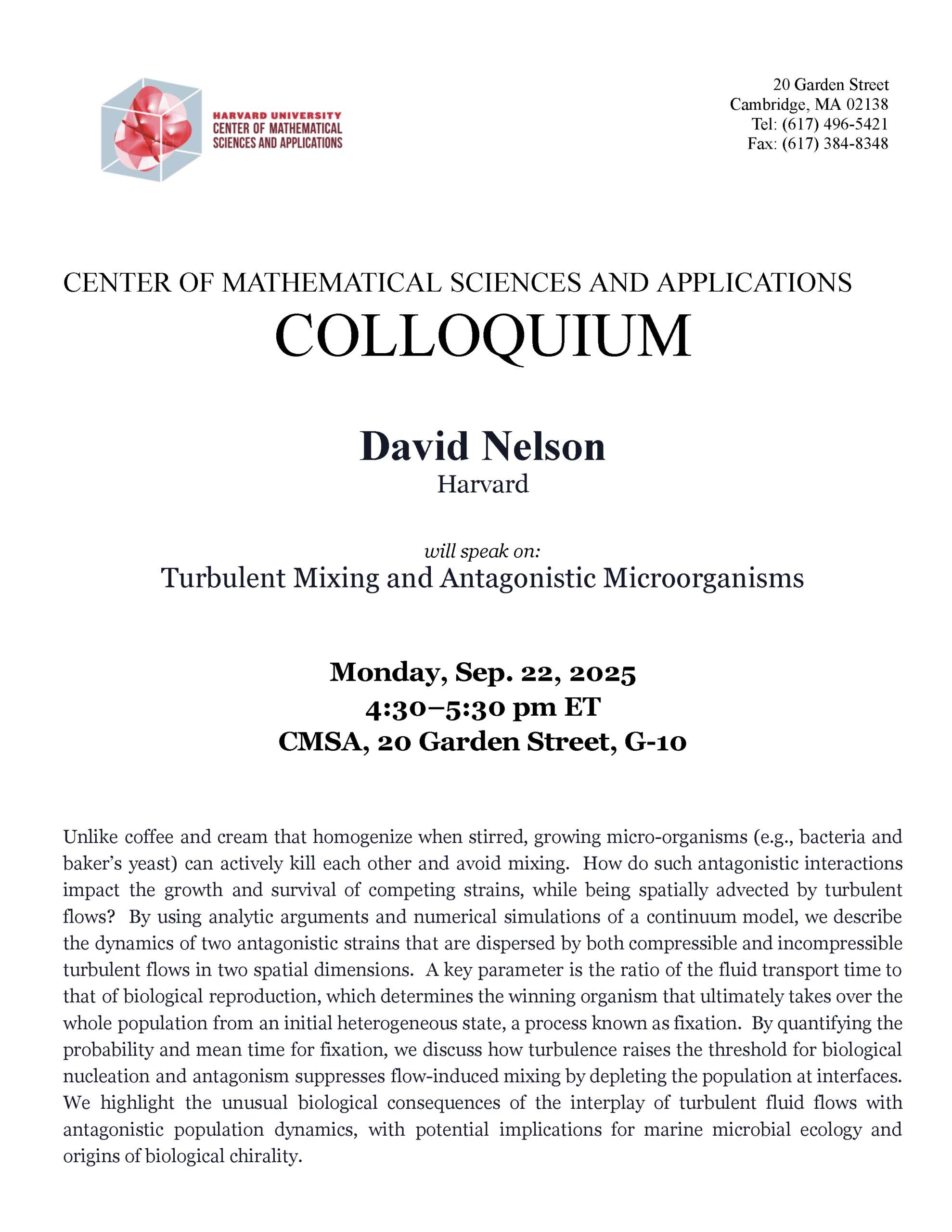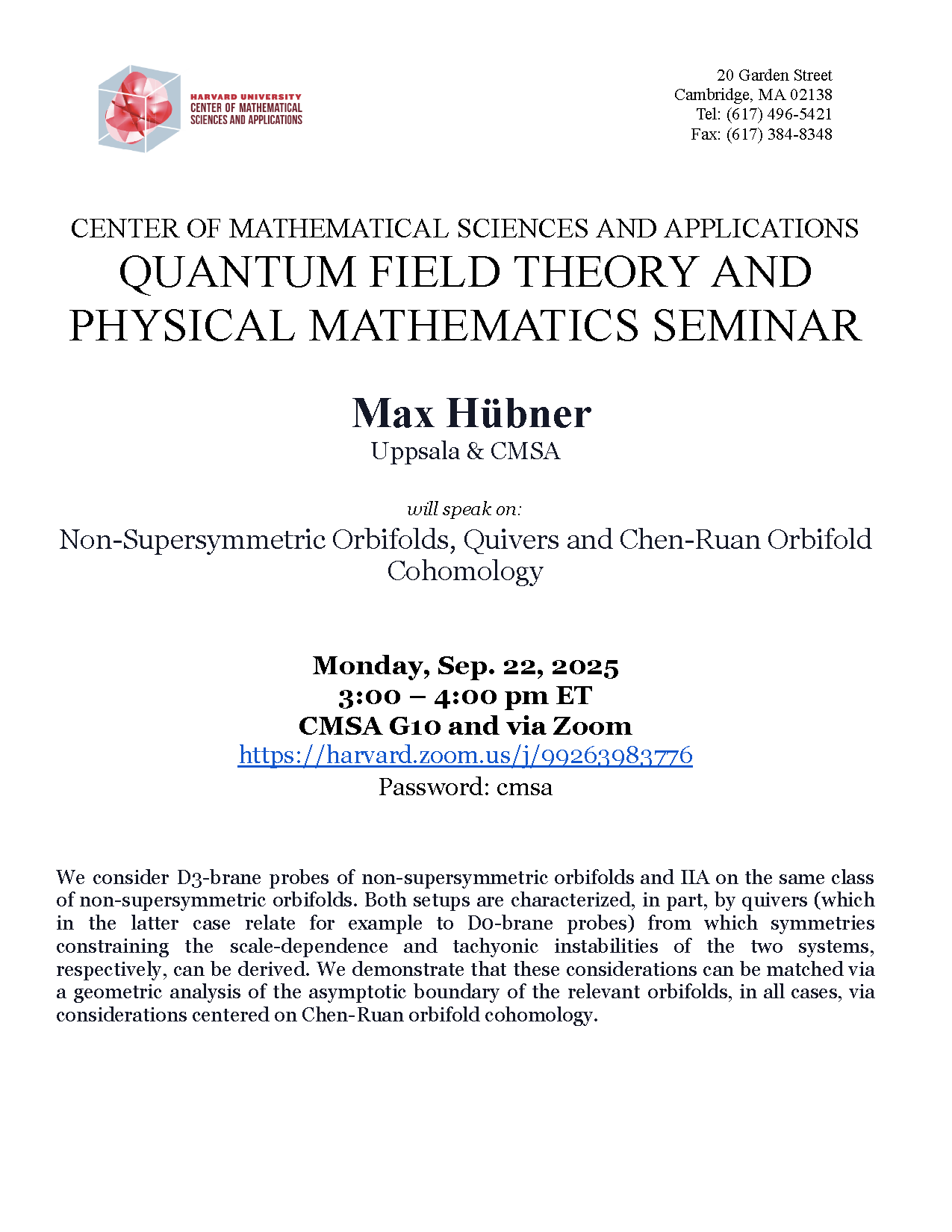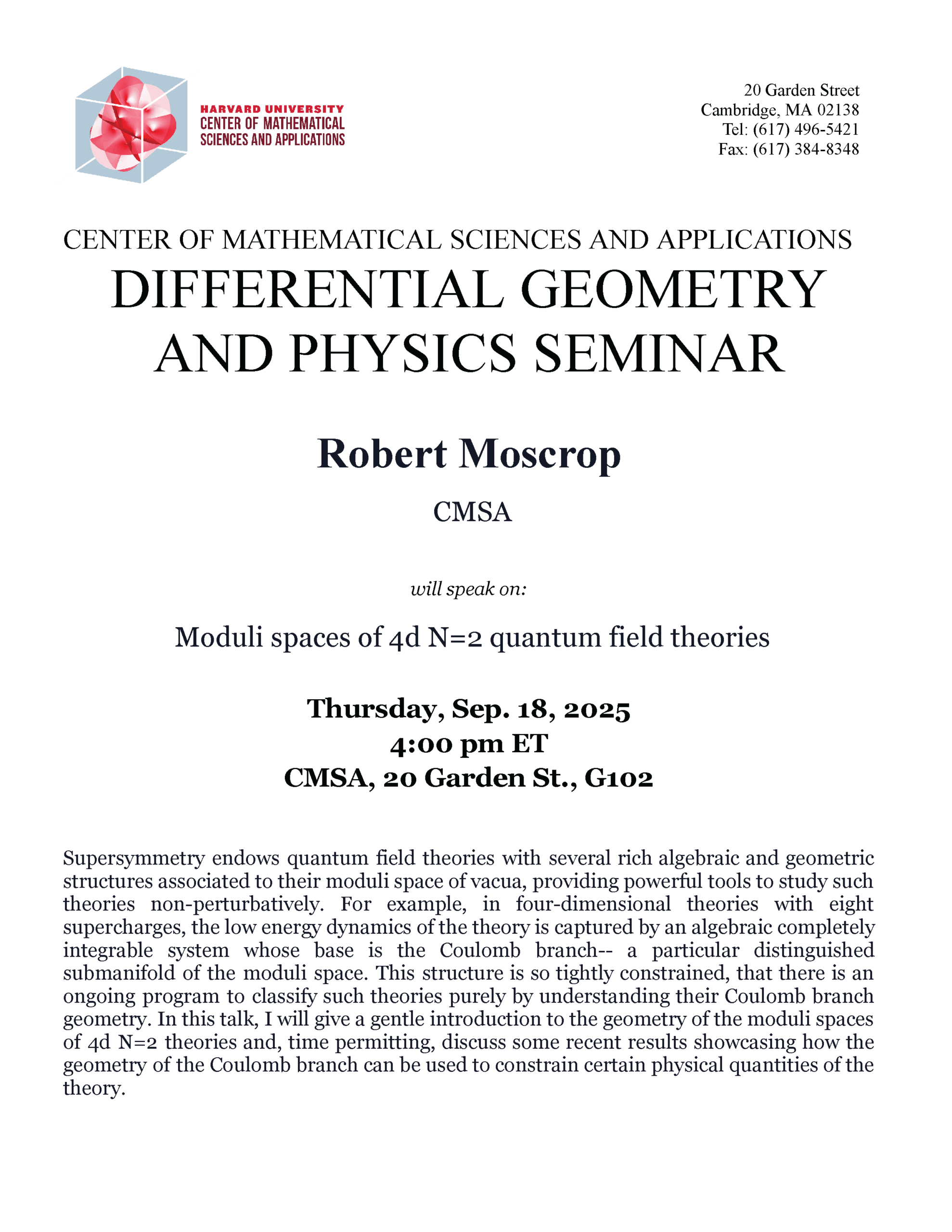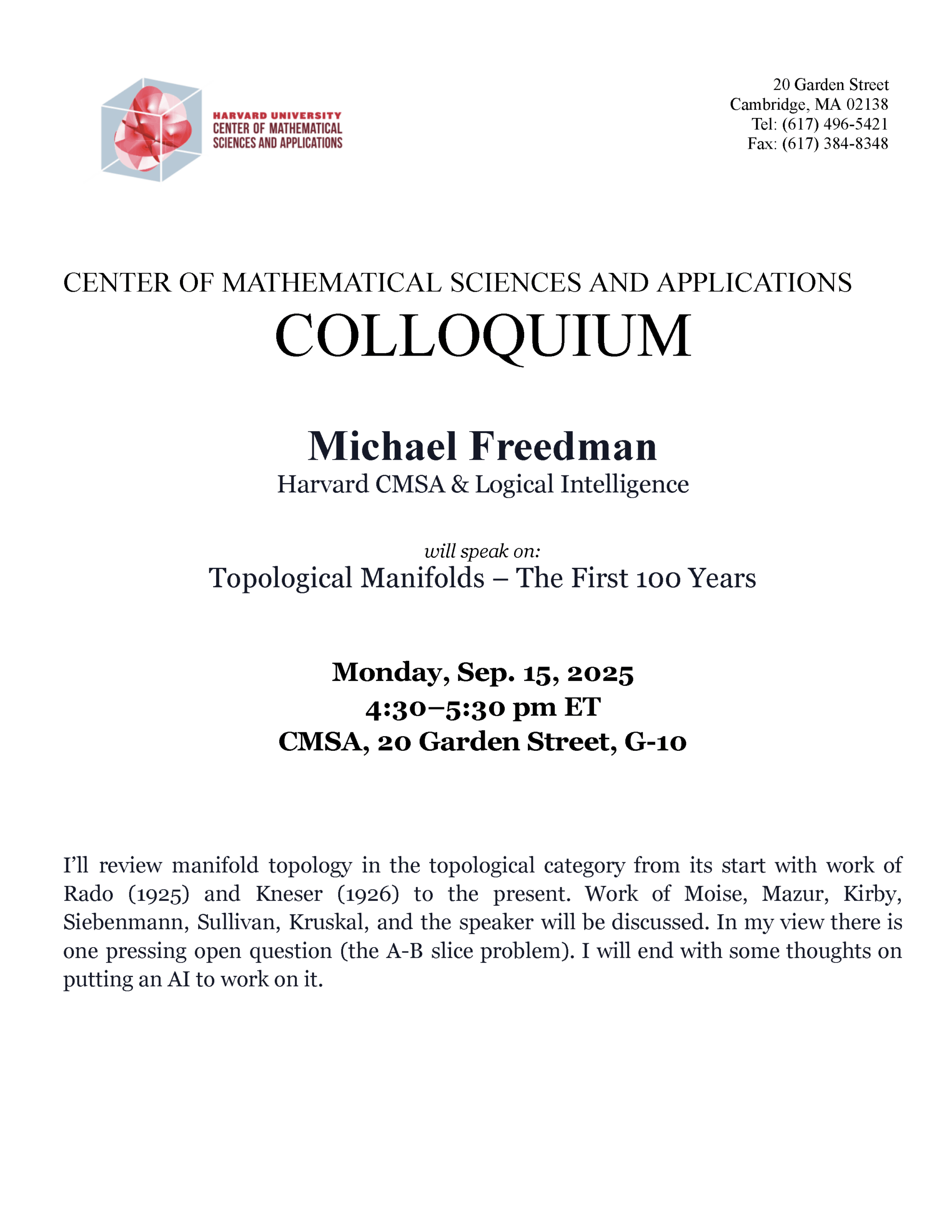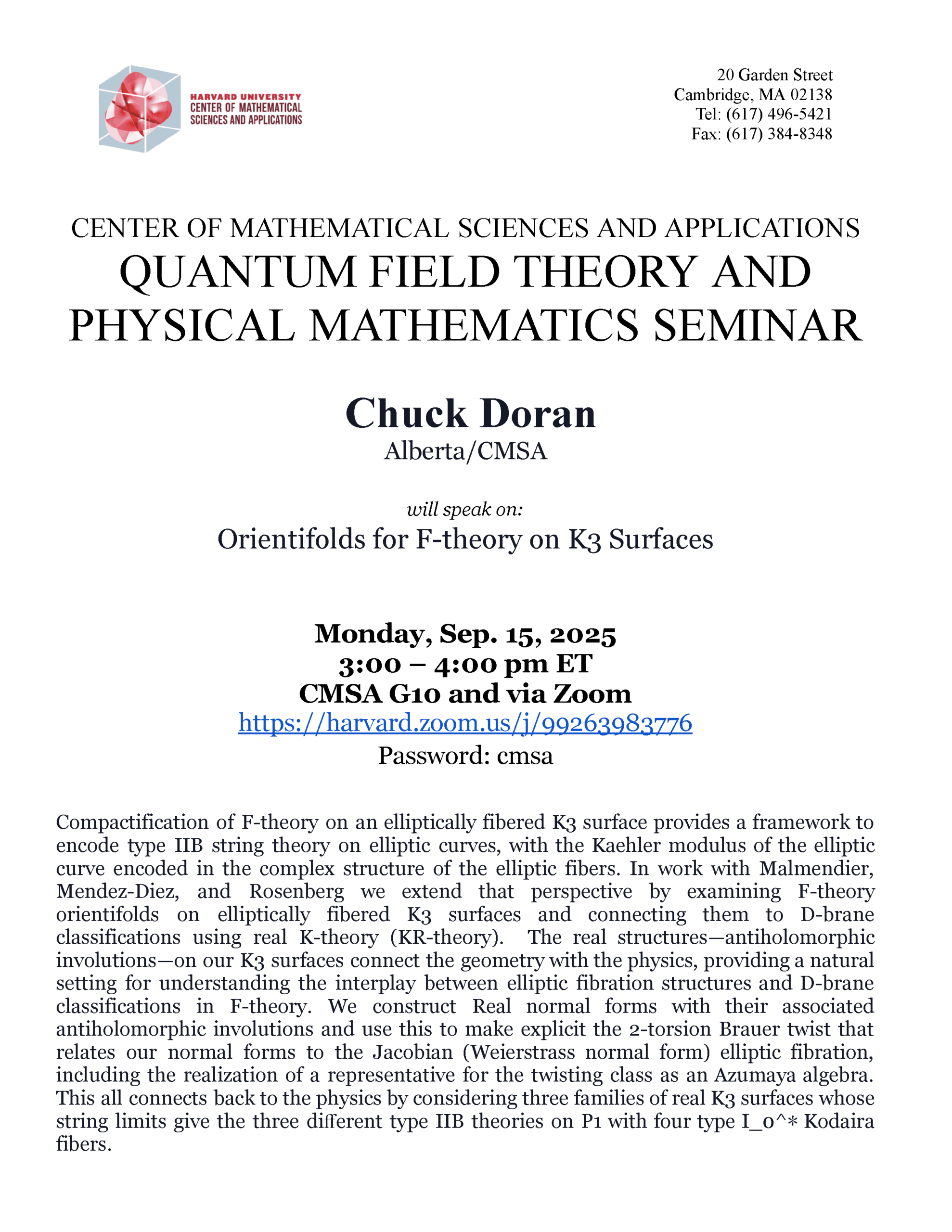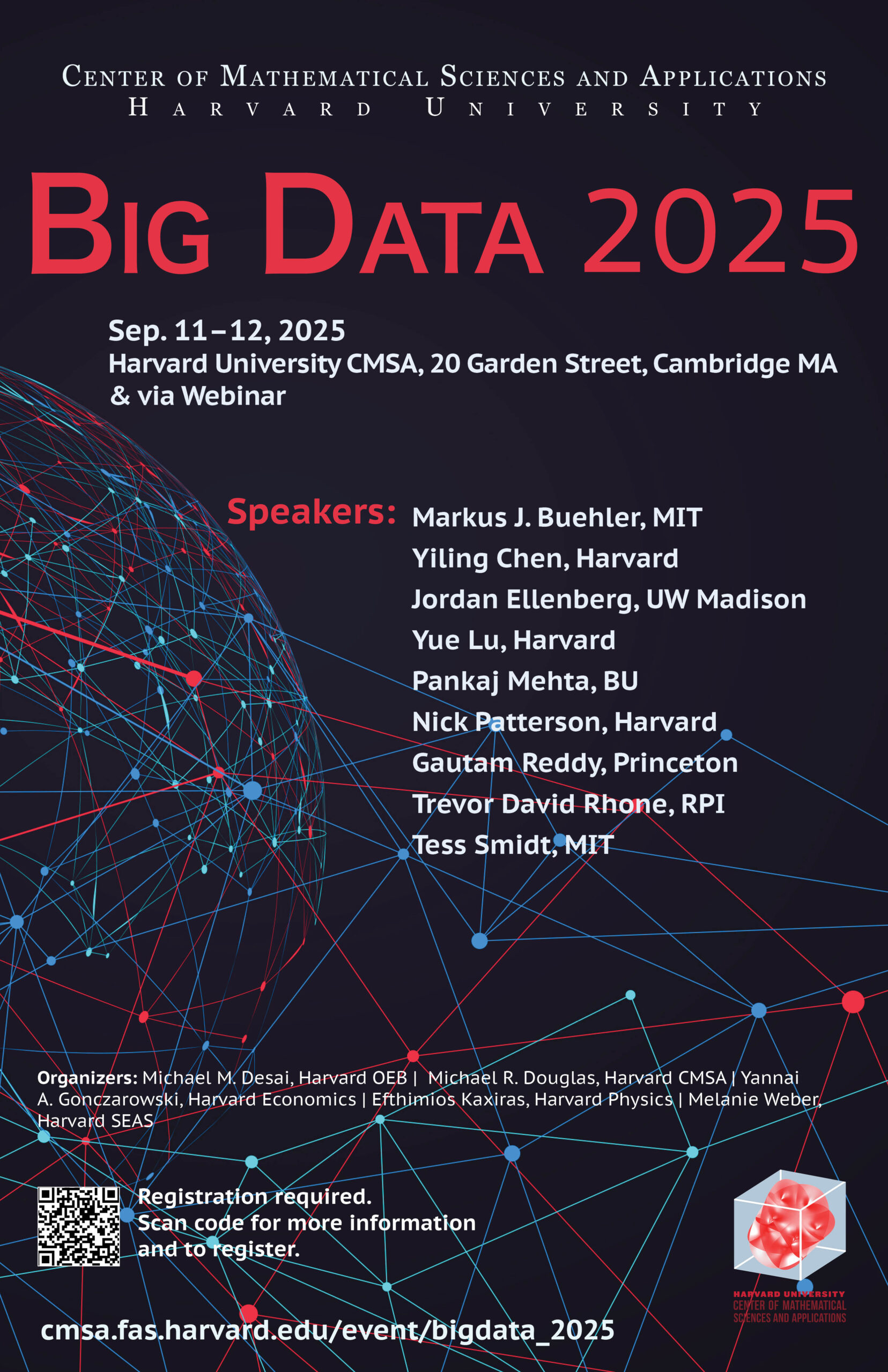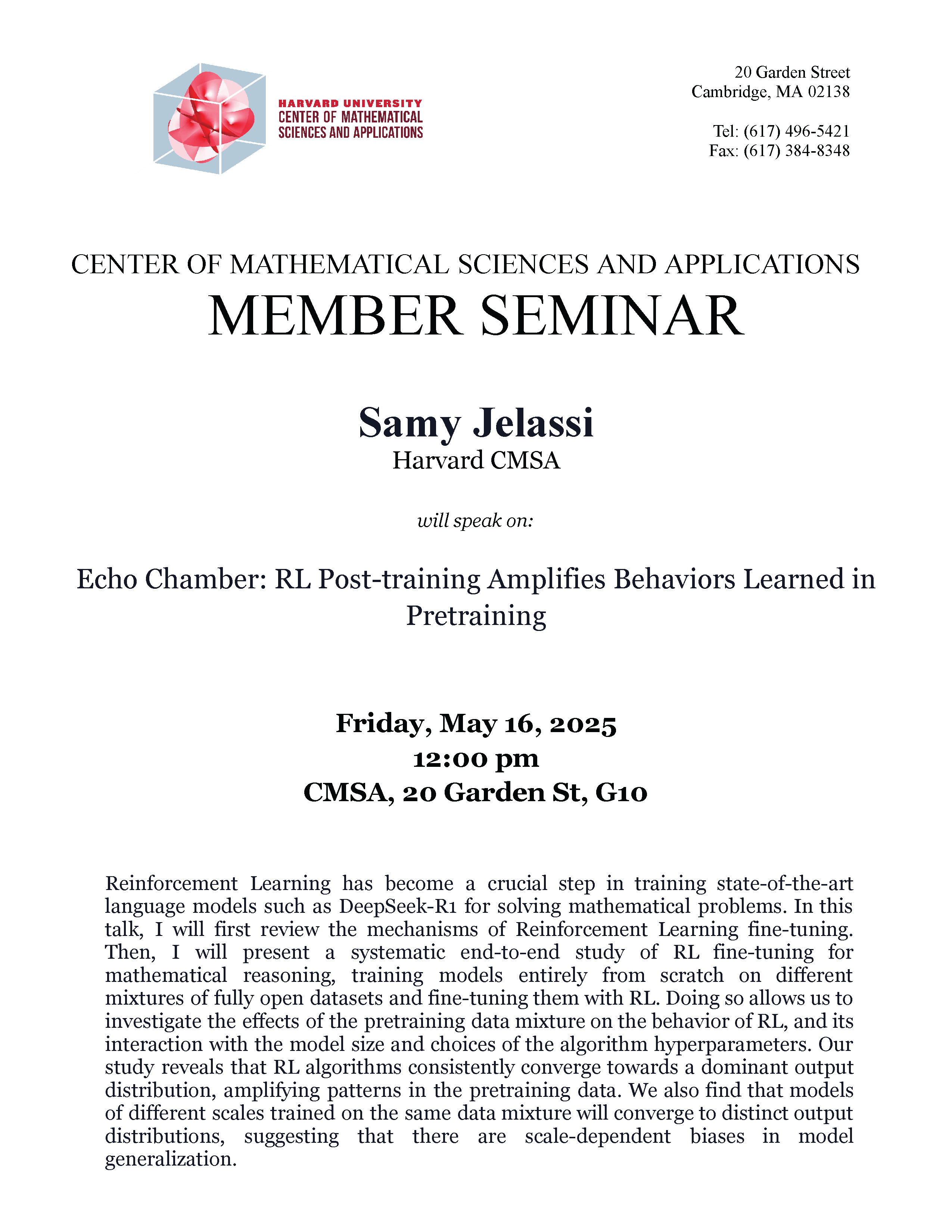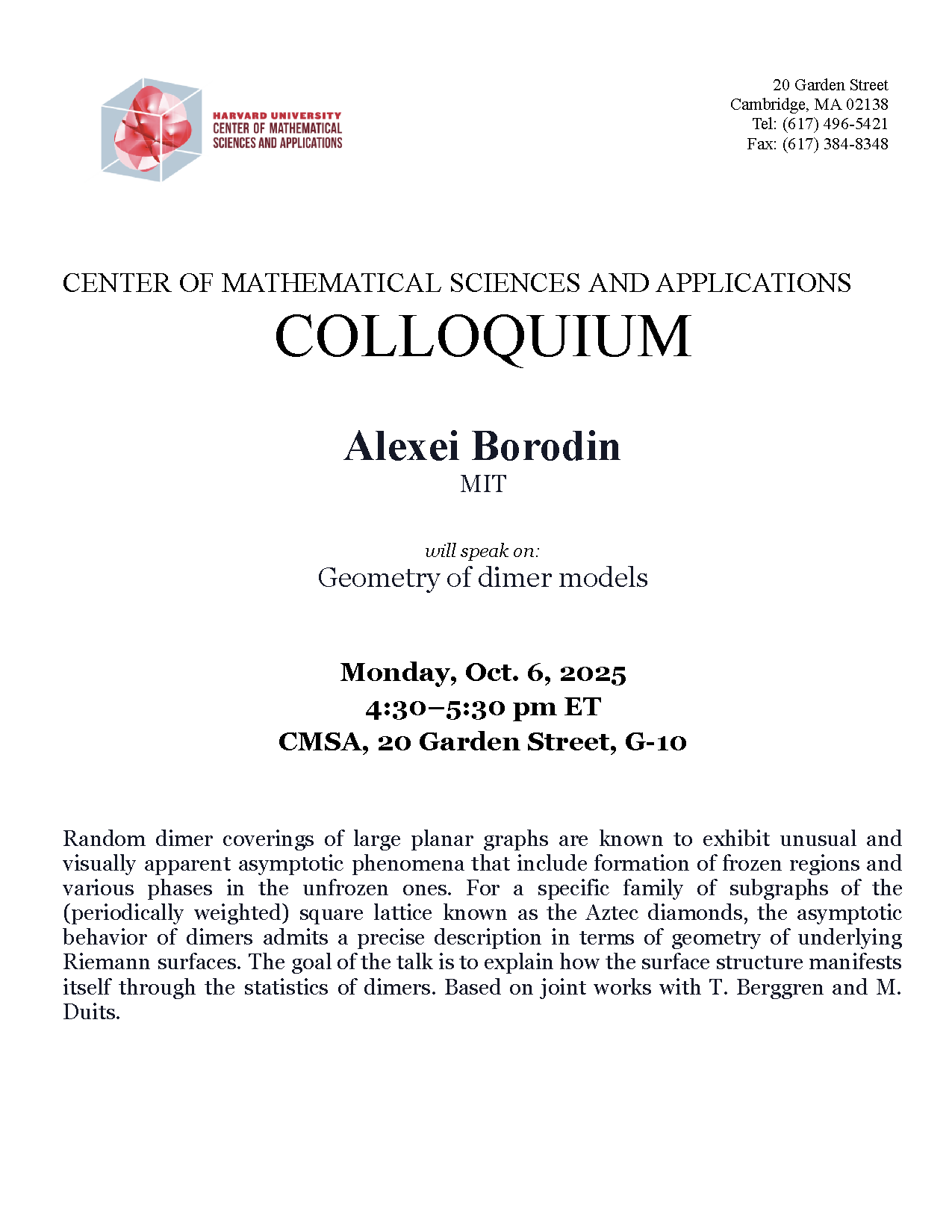
Geometry of dimer models
CMSA Room G10 CMSA, 20 Garden Street, Cambridge, MA, United StatesColloquium Speaker: Alexei Borodin, MIT Title: Geometry of dimer models Abstract: Random dimer coverings of large planar graphs are known to exhibit unusual and visually apparent asymptotic phenomena that include formation of frozen regions and various phases in the unfrozen ones. For a specific family of subgraphs of the (periodically weighted) square lattice known as the Aztec diamonds, the asymptotic behavior of dimers admits a precise description in […]

